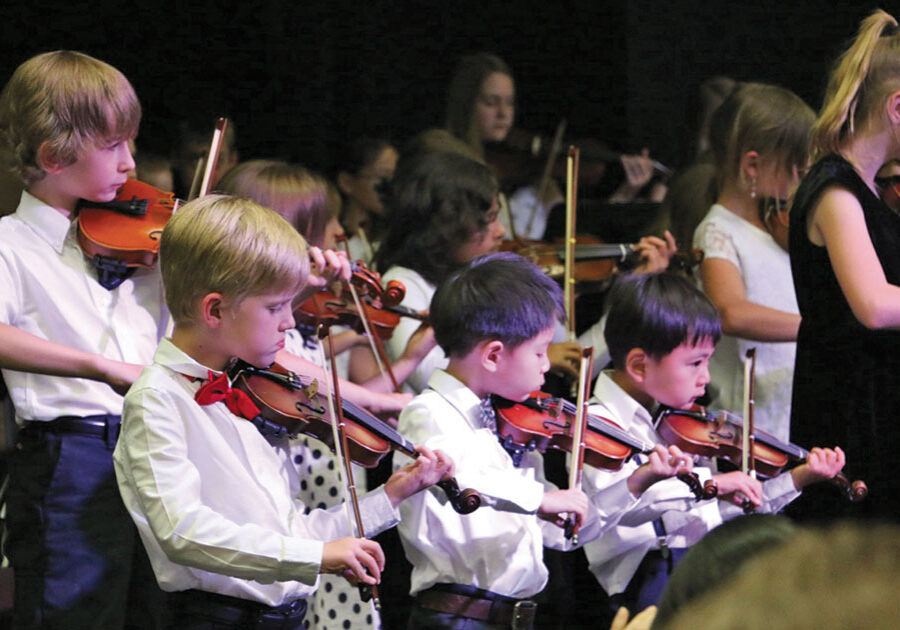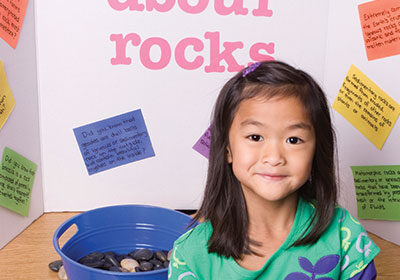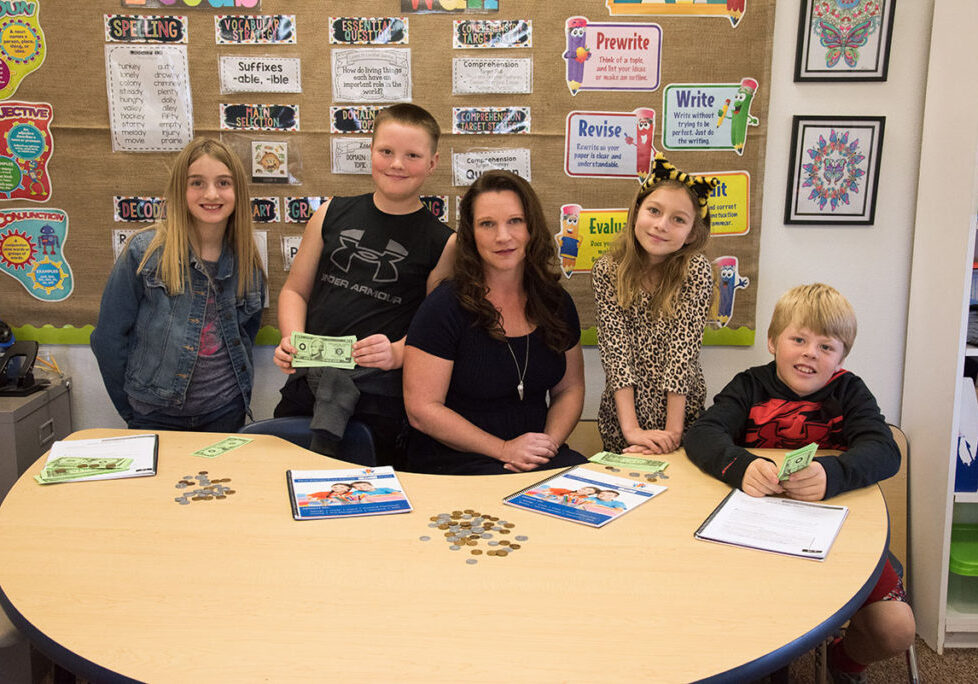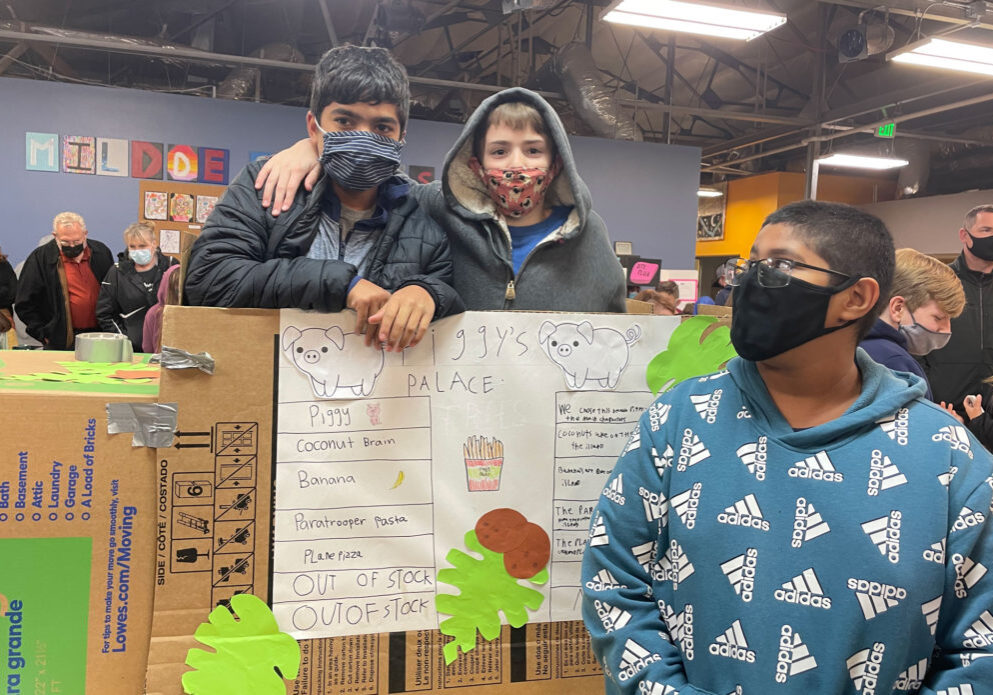My kids and I genuinely enjoy our time together.
We might spend our days reading classic poetry, or poring over books about art before going to the gallery, or sitting together with a cup of coffee to watch a documentary on climate change. We talk for hours some days, just discussing current events or dog training or online makeup artists or classic French cooking. Other days they’re absorbed in their own projects, rarely emerging from behind their desks except to grab a snack, and then re-emerging to show me their latest whittling project, or the digital animation they’ve been working on, or their enormous intricately detailed Minecraft world modeled after the gothic cathedrals of Spain.
Their current interests are always driving independent inquiry. We just go with it now.
It won’t always be difficult
I have always homeschooled my kids — all four of them. They are currently 14, 12, 6 and 3, and none of them have ever been educated anywhere but home. I never planned on it, and I just stumbled through everything at first, but now we can’t imagine doing anything else.
Those first years were full of mistakes and oversights and exhaustion, mostly because of the absurd expectations I placed on myself. I only ever attended public school, so that’s all I knew. It took me a long time to figure out how to reset my standards.
And right now, it’s important for us all to remember that pandemic homeschooling isn’t the same as everyday homeschooling, so it won’t always be this difficult. With this in mind, I have a few pieces of advice that may help you figure it all out for yourself.
Get out for a change of scenery
The pandemic has taught us that isolation isn’t good for anyone, even the most introverted among us. It is possible to engage with your community safely, especially as more people in your household are vaccinated. Look for opportunities with libraries, YMCAs, co-ops and clubs. You can find an opportunity for nearly everything — from chemistry labs to Cantonese lessons — online, of course, or you can create your own group. Even if all you do is go buy a tomato plant or take a half-mile walk, it’s important to get out for a change of scenery.
Set some healthy boundaries and guidelines for yourself
For me, this means typical physical self-care, along with setting and honoring boundaries with my time, my work, other people and myself. Make sure you schedule time for everyone — including you — to rest and recharge.
Don’t make comparisons
You don’t have to stand in front of your kid and lecture for eight hours a day. They would probably prefer you didn’t! You don’t have to assign nonstop papers and projects and tests. You don’t have to use textbooks, or allow digital devices, or go to every historical battlefield in the nation, or anything that you may notice other homeschool parents do, especially on social media. You just have to do what’s best for you and your kids.
Focus on routine rather than schedule
Most of us develop routines for small moments in our days, like early mornings. You may get up, make coffee, then watch the news. The same idea works for homeschooling. Our family developed a natural rhythm over time, moving the pieces of our day around to suit us. Don’t set yourself up for failure with an intense schedule that stresses everyone out.
Be patient with yourself and your kids
Your kid may fail an essential assessment. You may get ghosted by another parent you thought you clicked with. You may spend a mortgage payment on a boxed curriculum just to find you hate every single piece of it. It happens to all of us. Just take a breath, take the time to reset, and move on.
It takes time to settle into a groove. Some families get it right away, while others are still feeling unstable months later. There’s no set schedule for a huge transition like this, so be patient with yourself and your kids. And welcome to homeschooling!
Courtesy of Usable Knowledge at the Harvard Graduate School of Education
Posted in: Education
Comment Policy: All viewpoints are welcome, but comments should remain relevant. Personal attacks, profanity, and aggressive behavior are not allowed. No spam, advertising, or promoting of products/services. Please, only use your real name and limit the amount of links submitted in your comment.
You Might Also Like...

Strings in Schools – Violin, Flute and Kindermusik in the North State
Violins come in eight sizes, the smallest size merely 14.5 inches in length from scroll to end button. This adorable instrument fits snugly into the arm span of very young […]
Annual Homeschooling Conference is a Memorable, Fun & Educational Experience!
August 6-9, 2015, at the Doubletree Hotel in San Jose, CA. So much more than just a conference – The Homeschool Association of California’s annual “HSC Conference” is a celebration, a […]

Projectile Homework
Not “flu shots.” Not “chore chart.” Not even “Grandpa’s sauerkraut.” No, the two words that most set my family moaning are these: Class project. It happens a few times a […]

How To Talk To A Teacher
A meeting between you and your child’s teacher can be a powerful tool for helping your child succeed in school. Whether scheduled by the school, requested by you, or suggested by […]




